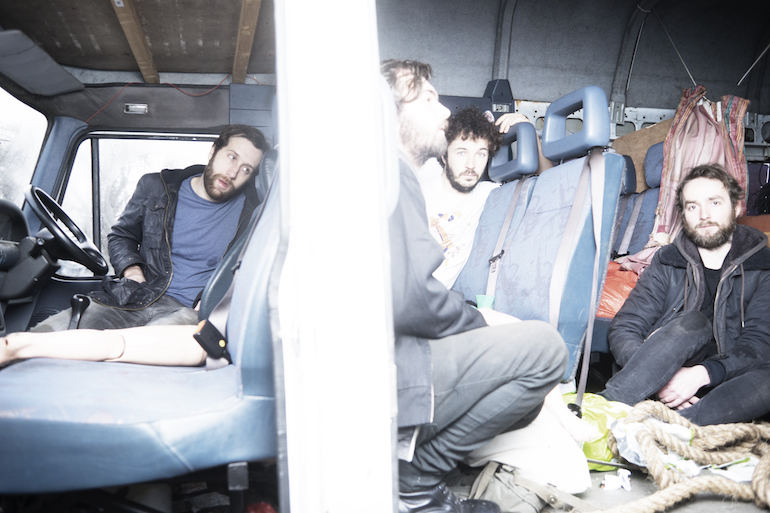 Song-writing can only ever really be as highfalutin as the (sonic) ideas it’s based on, and irrespective of reception, is only as forward-thinking as it wants to be. Experimental musicians are almost always looking for higher ground; not transcendence or pomposity, but something which takes steps closer to being defined as an “experience”.
Song-writing can only ever really be as highfalutin as the (sonic) ideas it’s based on, and irrespective of reception, is only as forward-thinking as it wants to be. Experimental musicians are almost always looking for higher ground; not transcendence or pomposity, but something which takes steps closer to being defined as an “experience”.
Bristol, UK quartet Spectres have said that they “simply didn’t have time to experiment” on Condition, their second full-length, despite wanting to embrace new ground. If the rush to release fresh noise upon the masses outweighs that of critical reception (as it ALWAYS should), then perhaps even accidental experimentation may rear its head now and again.
There are definable differences between Condition and Spectres 2015 predecessor, Dying.
Whereas the debut was an eruptive statement of intent, as is so often the case their second is a slight refinement. There is less of a reliance on severe, teeth-grinding scree and more of a measured drawl to most of the songs here. The longer-form tracks make attempts at being evocative rather than pulverising, and the more violent corners are smoothed into slightly cleaner, universally “tuneful” measurements, with the tone still kept at gutter level and the bleak reminiscences on human mentality that peppered Dying still keeping the light at bay.
Condition, perhaps for both good and ill, sounds like a record made between stages, as the band’s description of the recording process attests.

There are hints of more structural ease and composure here without turning too far either way; none of it is particularly ground-breaking, but there is a clear distance between the music here and the laurels they strode forth with in the early days. The martial stomp of opener “The Beginning of An End” sets the precedent perfectly; still contained in a three-guitar-and-drum lock-in but with a desire to aim for tangible atmospheres rather than simply brutal ones.
Occasionally that remit is very much met. The lilting shuffle and calamitous finale of “A Fish Called Wanda” is unashamedly ‘90s but is also a mine of texture and contorting dynamics. The hellish synth-and skin-crawling guitar futurism that begins the 9 minutes of “Colour Me Out” proceed into the track’s disconcerting dialect, balanced between cyclically cold and convulsing chords and ugly feedback before disappearing down a tuneless wormhole about four minutes from the end. Of the shorter, spikier moments, “Neck” re-boils all of the band’s haemorrhaging tropes into a scathing bout of Edgar Allen Poe-recalling weirdness, while “End Waltz” could be early Liars at their most youthfully self-assured and searing.
If Spectre’s approach to the record can be cynically taken as not entirely finished however, then it shows in some of the writing here too.
Despite its suggestive 8-minute run-time, “Dissolve” breezes by without any real assertion of new ground or spine-tingling horribleness, and “Welcoming The Flowers” doesn’t feel anywhere near as acerbic or sonically biting as the band’s most unpleasant sojourns have done in the past. In some ways, Condition conforms to the “difficult second album” stereotype, and perhaps in this case it’s due to Spectres seeking too much change too quickly. It doesn’t feel like the well is running dry, rather that the intermittently half-baked feel of this record might be a product of its rushed surroundings.
Rating: 3/5


